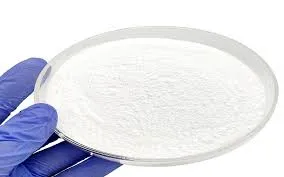The Benefits of Quinones Nature's Powerhouse Compounds
Quinones are a class of cyclic organic compounds characterized by their unique structure, which consists of a six-membered aromatic ring with two double-bonded carbonyl groups. Found in various natural sources,including plants, fungi, and bacteria, quinones are known for their diverse biological activities and have garnered attention in fields such as medicine, agriculture, and environmental science. This article explores the numerous benefits of quinones and their potential applications.
1. Antimicrobial Properties
One of the most significant benefits of quinones is their potent antimicrobial activity. Numerous studies have demonstrated that quinone derivatives exhibit strong inhibitory effects against a wide range of pathogenic microorganisms, including bacteria, fungi, and viruses. For instance, compounds like naphthoquinones and anthraquinones have been shown to effectively inhibit the growth of drug-resistant strains of bacteria, making them promising candidates for developing new antibiotics in an age of increasing antibiotic resistance.
2. Antioxidant Activity
Quinones are also known for their antioxidative properties, which can help protect cells from oxidative stress caused by free radicals. Oxidative stress is linked to various chronic diseases, including cancer, cardiovascular diseases, and neurodegenerative disorders. By scavenging free radicals, quinones can potentially mitigate the effects of oxidative damage and contribute to overall cellular health. Research has suggested that certain dietary quinones, found in foods like certain fruits and vegetables, may play a role in reducing inflammation and promoting a healthy aging process.
The anticancer effects of quinones have attracted significant attention in cancer research. Many quinone compounds have been reported to induce apoptosis (programmed cell death) in cancer cells while sparing normal cells, making them potential chemotherapeutic agents. For example, the compound doxorubicin, an anthracycline antibiotic, is based on quinone structures and is widely used in the treatment of various cancers. Additionally, research continues to explore the mechanisms by which quinones interact with cellular pathways, aiming to enhance their efficacy and reduce side effects in cancer therapy.
quinone benefits

4. Plant Growth and Agriculture
In agriculture, quinones play a crucial role in plant defense mechanisms. Many plants produce quinones as secondary metabolites to fend off pathogens and herbivores. This natural antifungal property has profound implications for sustainable agriculture, as it can lead to the development of environmentally friendly pesticides and fungicides. Moreover, certain quinone compounds can stimulate plant growth and improve crop yields, contributing to food security and sustainable farming practices.
5. Environmental Applications
Quinones are not limited to biological and agricultural applications; they also hold promise in environmental science. They are involved in the biodegradation of various pollutants through redox reactions, helping to break down harmful substances in the environment. Additionally, their ability to bind with metal ions makes them useful in developing bioremediation strategies to remove heavy metals from contaminated soils and waterways. The utilization of quinones in these processes represents an innovative approach to tackling environmental challenges.
6. Promoting Skin Health
Quinones have been increasingly recognized for their potential benefits in skincare. Many plant-derived quinones are included in cosmetic formulations due to their antioxidant properties, which help protect the skin from oxidative damage caused by UV radiation and pollution. Some studies suggest that these compounds may improve skin elasticity, reduce the appearance of fine lines, and promote a more youthful complexion. As a result, skincare products containing quinones are gaining popularity among consumers seeking natural and effective anti-aging solutions.
Conclusion
In summary, quinones are versatile compounds with a wide array of benefits across different fields. Their antimicrobial, antioxidant, and anticancer properties, along with their importance in agriculture and environmental applications, highlight their potential as valuable tools for combating health and environmental challenges. As research continues to explore the various roles of quinones, we may unlock even more applications, paving the way for innovative solutions that harness the power of nature. Whether in the kitchen, the lab, or the field, quinones are indeed a testament to the interconnectedness of biology, chemistry, and sustainability.

